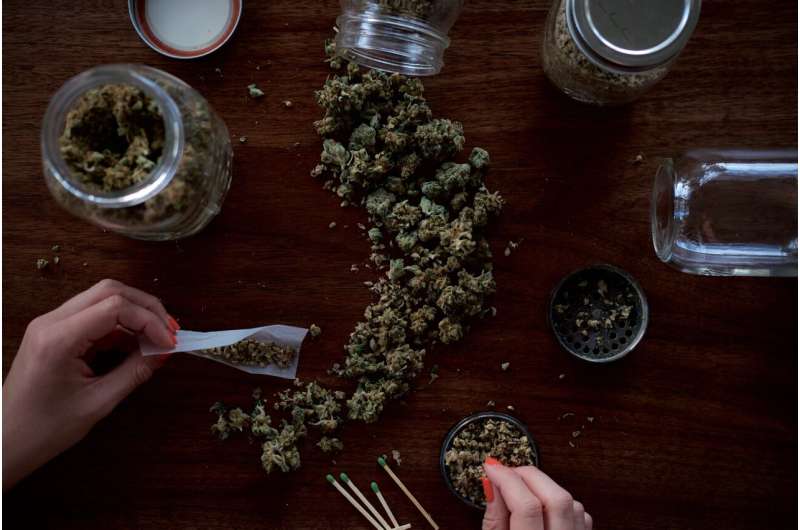Cannabis tourism: How a new travel trend is taking off

Legal cannabis consumption in the and during the COVID pandemic, with some people turning to marijuana to help them with lockdowns and . Meanwhile, fewer people today view the drug as compared to previous decades.
These factors may have contributed to a trend towards cannabis-related tourism, with destinations developing new holiday products to tempt customers, and rising travel bookings to destinations where cannabis is . But there are risks for both destinations and tourists in embracing this trend.
Work by found are interested in cannabis-related tourism. A study by the Dutch government revealed that of international tourists choose Amsterdam in order to consume drugs. And business in Dutch coffee shops has since the start of the pandemic.
Nine months after Illinois legalized recreational cannabis in January 2020, nearly were by non-residents. Thailand has it has legalized cannabis and is hoping this will boost tourism.
The tourism sector and have reacted quickly to the demand for cannabis, hemp and CBD-related products by designing experiences that include those elements. They are also responding to the economic potential related to increased , tax revenues, increased land values, business expansion, jobs and that could be connected to cannabis sales.
Yet although tourism to other destinations with legalized cannabis is growing in , is only to be collected. And so far no destination is ready to be labeled as the "".
Big potential
While cannabis-related travelers are believed to be , authorities to replicate the Dutch model, which led to massive concentration of cannabis coffee shops in Amsterdam and raised concerns over .
New business models are focusing on agri-tourism (meet-the-farmer sessions) and culinary tourism and events such as cannabis . Tourists can choose from , "" hotels, , , , , "ganja ", and packages that combine and .
The potential for cannabis tourism is widespread around the world. More than 19 U.S. states and have now legalized recreational cannabis, along with , , and . In Europe, Luxembourg allows the consumption of personally cultivated cannabis, while is trialing cannabis sales from pharmacies for recreational purposes.
and have made initial steps towards legalizing recreational use. and have also approved legalization for medicinal purposes.
Risks for tourists
However, few countries have clarified the legality of cannabis use by tourists with legislation directed at recreational use by residents. This means tourists risk breaking the law , by interacting with as well as the health implications of consuming real and .
There is some evidence cannabis can . But tourists with pre-existing mental health disorders, for example, may risk their . Cannabis-related mental health events including can also occur among those who have with mental health issues.
A patchwork of regarding recreational cannabis use by means questions remain about the legality of consumption, the transport of cannabis vape pens overseas as well as issues of insurance cover and health care, during and after travel.
While Uruguay is planning to consumption by tourists, countries like Portugal, where cannabis has been decriminalized since 2001, still doesn't allow them to buy it legally. In Spain, allow visitors to donate to the club instead of purchasing a product. But and other large markets are focused on rather than international visitors.
Few countries have carried out a around legal cannabis and tourism, or fully discussed issues of land and water use, police powers and benefits to local communities. While cannabis tourism can generate tourism and jobs, and reduce the power of organized crime, the goal of sustainable development is threatened by theft, racism, and a market stacked small local operators who often can not secure funding or insurance. There are also possible increases in pollution and public health and .
and have promised funding for indigenously owned businesses to aid social and racial equality, while plans to create a US$200 million (£162 million) public-private fund to support social equity goals. , and with communities on how to plan the sustainable development of cannabis tourism should be a vital part of development of the sector.
While it appears that the COVID pandemic helped and the use of marijuana, with dispensaries declared in parts of the US during the pandemic, tourism could expand and of its use.
Perceived risks may fade and and tourist may dissipate. Cannabis tourism is likely to become just another segment of the holiday industry.
Provided by The Conversation
This article is republished from under a Creative Commons license. Read the .![]()
















